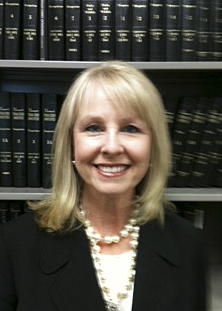By Janet Elliott
AUSTIN – Collin County District Court has become the de facto securities fraud court in Texas. Twelve individuals have been sentenced there in connection with a variety of investment scams since 2009, more than any other jurisdiction.
A cooperative district attorney’s office, a large urban county with no shortage of victims and tough juries – twice returning 99-year sentences – have made the county a popular place for the Texas State Securities Board to bring their cases.
Securities Commissioner John Morgan said the agency initially forged a relationship six years ago with an assistant DA in Collin County who had a background as a federal prosecutor and took a keen interest in white-collar crime cases.
“We established a relationship with him, had a few cases there and we just built on that,” Morgan says.
Securities Board attorneys can bring criminal prosecutions by getting the local district attorney to appoint them as special prosecutors to try a case or sit second chair, or they can simply work in an investigative and research support role in a trial.
The two 99-year sentences came less than a year apart.
In May 2009, William Lester Seelye of McKinney was sentenced to 99 years for stealing money from investors in bogus oil and gas exploration projects.
In February 2010, Edward Digges received the maximum sentence for organizing and leading a multistate, fraudulent scheme involving the sale and lease of credit card machines. The jury heard a complex case involving 107 Texas investors and $30 million.
“There were lots of documents and lots of witnesses,” says Linda Kirklen, an assistant criminal district attorney who helped try the case. “Fortunately, we have intelligent juries who can understand the transactions and fraud aspects if they are presented clearly.”

Kirklen was joined for the four-week trial by Dale Barron, an enforcement attorney with the Securities Board regional office in Dallas. Board staff organized and analyzed the transactions, and developed visual aids that helped the jury.
Kirklen credits Criminal District Attorney Greg Willis and his predecessor John Roach with putting a priority on securities fraud cases.
“Unless you have an alliance like this, it’s very difficult for a DA’s office to have the resources to handle all the analysis and figure-intensive work that goes into preparing these cases,” says Kirklen.
Barron and five other enforcement attorneys work as special prosecutors in counties around Texas. Nueces and Potter also are regular venues because of support from those district attorneys. For federal cases, the U.S. Attorney in Dallas is the go-to office, with two enforcement attorneys assigned as special prosecutors.
Morgan began as an enforcement attorney at the agency 27 years ago. He tried cases as a special prosecutor in Central Texas, learning the importance of keeping the evidence simple.
“These aren’t identification cases or cases where facts are in dispute. These involve documentation, bank records, the source and use of investor funds,” he says.
When fraud arises in rural Texas, the expertise of Morgan’s agency is crucial.
Limestone County Attorney Roy DeFriend’s three-lawyer office did not have the resources to prosecute a wide-ranging case involving an unregistered investment adviser who gained his victims’ trust by quoting the Bible. DeFriend appointed Barron special prosecutor to try the area con man.
Reginald Lee Clark was sentenced to 25 years in prison last May after being convicted of theft for stealing more than $400,000 from clients of his business, Clark Investment Advisors, which operated in Limestone County and surrounding areas.
In an article for “The Prosecutor,” Barron and his colleague Alexis Goldate detailed how Clark initially placed investor’s funds in legitimate investments such as annuities or brokerage accounts and later steered them toward other investments.
He provided clients false statements with fictitious returns, while spending their money on his household expenses and to pay back other investors. One woman lost more than $150,000.
“Con men know where the money is: in the hands of seniors, who have spent a lifetime saving and investing. The worst of the worst con men are the ones that hide behind the Word of God to perpetrate their scams,” Barron and Goldate wrote in the article.
DeFriend helped select the jury, but let the board attorneys handle the four-day trial.
“Most medium to small town law enforcement agencies don’t have on staff the personnel like forensic accountants needed to properly investigate financial crimes. And proper investigation leads to successful prosecution,” says DeFriend.
Sophisticated criminals like Clark are more dangerous than a burglar who steals your TV, DeFriend says, because they rob victims of their life savings.
Kirklen says she and Barron were determined to bring some justice to Digges’ victims.
“Some used their life savings, money that is not easily recovered, if at all, by elderly people,” she says. “The victims were what made the case so important.”
PLEASE NOTE: Content of The Texas Lawbook is controlled and protected by specific licensing agreements with our subscribers and under federal copyright laws. Any distribution of this content without the consent of The Texas Lawbook is prohibited.

Leave a Reply
You must be logged in to post a comment.